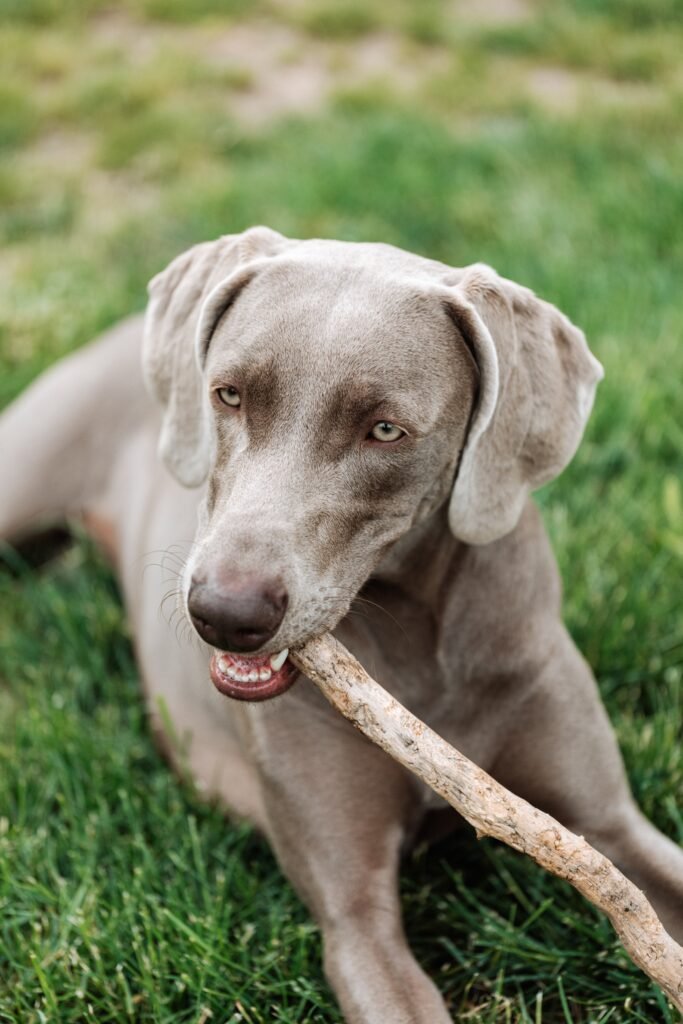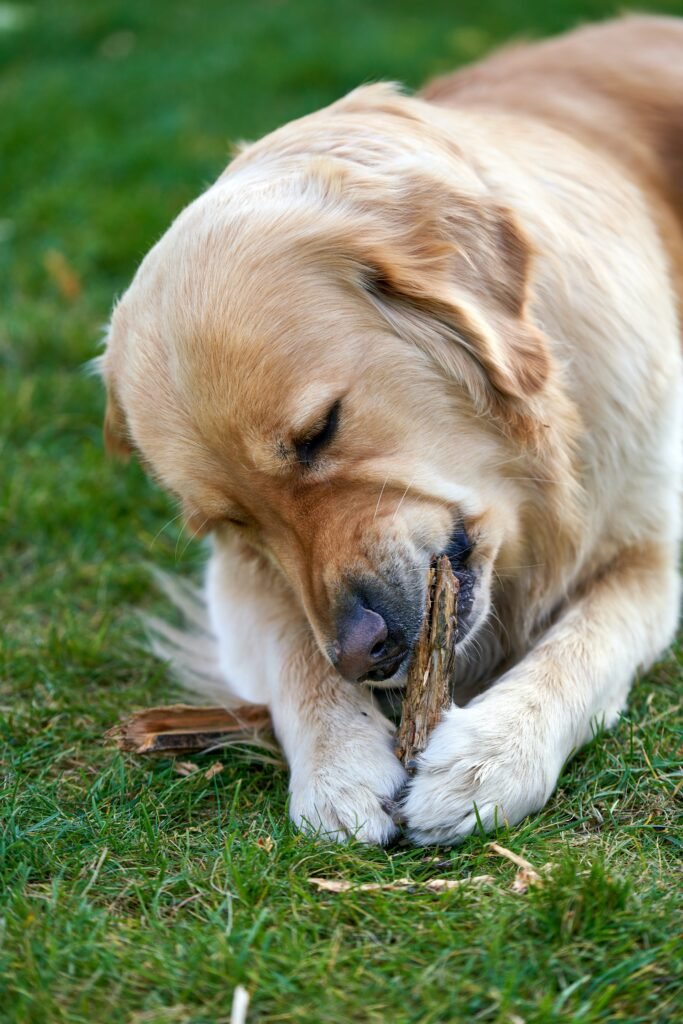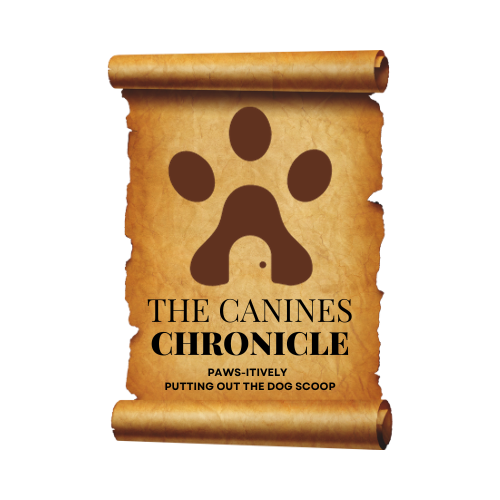Demystifying Sudden Chewing Behavior in Dogs

Your lovable four-legged family member can sometimes suddenly turn into a miniature tornado, chewing away everything in its path. What are the reasons behind this unexpected behavior? Can anything be done to curb it? Let’s unravel these mysteries and more.
Understanding the Chew Instinct
Chewing is as essential to dogs as speaking is to humans. Now, it becomes a problem when this instinct overshadows domestic peace.
The Biology behind Chewing in Dogs: An Evolutionary Perspective
Like many animal behaviors, chewing in dogs has an evolutionary root. Dogs, as descendants of wolves, used their teeth as tools for survival. Chewing helped them hunt, eat, and even communicate. Although today’s pet dogs have come a long way from their wild ancestors, this chewing instinct is hard-wired.
Impact of Breed and Age on Chewing Behavior
Specific dog breeds, like Retrievers, are more prone to chewing since they were bred to retrieve game with their mouth. Also, younger pups and adolescent dogs tend to chew more due to their boundless energy and curiosity.
Role of Teething in Puppies and Chewing
Teething can trigger increased chewing in puppies. Much like human babies, when their gums are sore, they seek relief by gnawing on different things.
Spotlight on Stress, Boredom, and Anxiety
Human emotions aren’t the only ones affected by stress and boredom. Dogs experience a similar sentiment, and their coping mechanism often involves chewing.
Signs of Stress and Anxiety in Dogs leading to Chewing
If your dog is chewing irregularly or excessively, it might be a sign of stress or anxiety. Other symptoms include decreased appetite, changes in sleep patterns, and aggressive behavior.
The Boredom Connection: How Lack of Stimulation Fuels Chewing
Lack of mental and physical stimulation can make your pet resort to chewing as a means of entertainment. Despite being house pets, dogs harbor a natural instinct to hunt, explore, and stay active.
Combating Canine Stress and Anxiety: Effective Techniques
Proper exercise, positive reinforcement, and mental stimulation in the form of puzzle toys can all help reduce your dog’s stress and anxiety. In severe cases, professional help may be necessary.
For a quick read on your sweet companions diet check out our other post: https://thecanineschronicle.com/index.php/2023/11/07/canine-connoisseurs-a-deep-dive-into-human-food-and-your-dogs-diet/
Medical Conditions Triggering Chewing
Sometimes, the reason behind your dog’s destructive behavior may be medical.
Digestive Problems and Increased Chewing: The Hidden Link
Ingesting non-food items, a condition known as pica, could signal malnutrition or gastrointestinal issues.
Other Health Issues leading to Chewing Behaviors
Dental problems, oral discomfort, or underlying diseases like diabetes and hyperthyroidism can manifest as excessive chewing.
Role of Veterinarians in Diagnosing and Addressing Health-Related Chewing
If behavioral adjustments aren’t reducing the chewing, consult with a veterinarian. They can rule out any underlying health issues and recommend specific treatments or dietary changes.
The Influence of Diet and Nutrition
What your dog eats has a direct bearing on its overall health and behavior.
Connection between Improper Nutrition and Chewing
Improper nutrition can trigger excessive chewing. If your dog’s diet is deficient in essential nutrients, they might start chewing random objects.
How to Balance Your Dog’s Diet to Reduce Chewing
Offer a balanced diet rich in essential nutrients. Consider high-quality commercial dog foods that meet nutritional standards set by the Association of American Feed Control Officials (AAFCO). Consult with a vet or pet nutritionist for personalized advice.
Recommended Chewable Foods & Treats for Dogs
Incorporate chewy treats like raw bones or robust rubber toys. These treats not only satisfy the natural urge to chew but also keep your dog’s teeth clean.
Training, Corrections, and Positive Reinforcements
Any type of training included with correction and positive reinforcement is crucial to manage your furry friend’s chewing habit.
One Way To Train Your Dog to Stop the Chewing Spree
It’s possible to train your dog to chew only on appropriate items. Using a firm ‘no’ when they chew on unwanted things, then redirecting them towards a suitable toy or treat.
Identifying and Using Suitable Chew Toys
Choose chew toys based on your dog’s size and chewing capacity. When searching for a great toys, they should be big enough to avoid choking but not too big that they can’t hold it.
Use of Positive Reinforcement, Distractions, and Alternatives
Reward your pet when they choose their chew toy over household items. This reinforcement will motivate them to repeat the behavior.
Wrapping Up: Comprehensive Approach to Chewing Problems
Sudden destructive chewing in dogs can be frustrating but remember that your pet is not doing this intentionally.
Recap of the Factors Leading to Destructive Chewing
Several causes can lead to excessive chewing in dogs – it can be inherent, due to stress, medical conditions, nutrition inadequacy, or sheer boredom.
Guidelines for Monitoring and Managing Your Dog’s Chewing
Stay vigilant about sudden changes in your dog’s chewing habits. Exercise patience and consistency in training and provide ample mental and physical stimulation.
Dog owner’s Checklist: Steps to Prevent Your Dog From Chewing Everything
- Regular exercise and mental stimulation
- Balanced nutrition
- Regular vet check-ups
- Suitable chew toys and treats
- Consistent training and positive reinforcement

Frequently Asked Questions (FAQs)
Why is my older dog chewing on things suddenly?
A shift in an older dog’s behavior may indicate health issues. It’s crucial to consult with a vet to understand underlying causes.
How can I stop my dog from chewing furniture?
Offer chew alternatives like toys or treats, apply detection sprays on furniture, or consider crate training while you’re away.
Are there certain breeds more prone to chewing?
Retrievers, Bulldogs, Labradors, and German Shepherds are a few breeds associated with an increased tendency to chew due to their historical roles and breed traits.
Chewing is an essential part of your pet’s life. It’s our responsibility as pet owners to guide them towards healthy chewing habits. Remember, understanding and patience go a long way in curbing destructive behavior and nurturing a stress-free environment for your four-legged friend.
A survey based exploratory study gives us some statistics to explore how dog owners manage the chewing behavior of their dog: https://www.researchgate.net/publication/352300264_Chewing_behaviour_in_dogs_-_A_survey-based_exploratory_study

